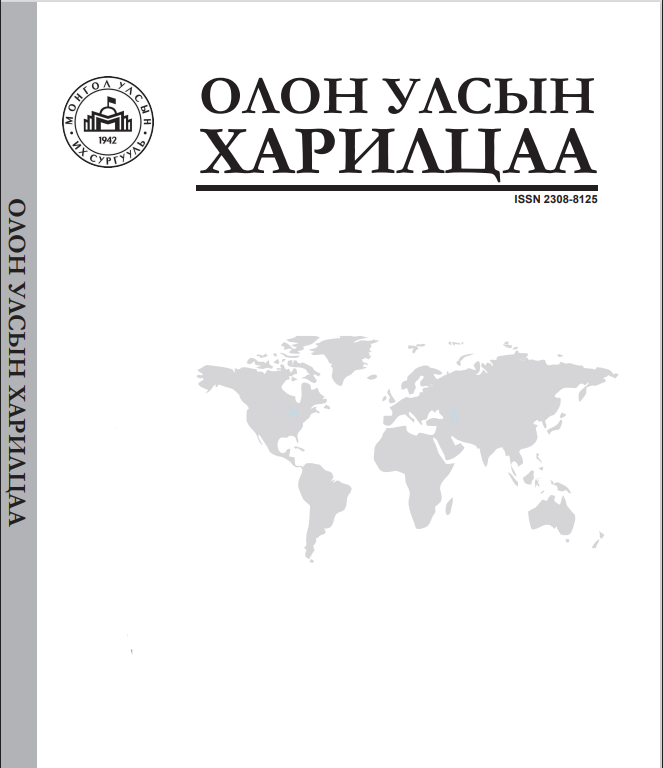Дэлхийн пэг журмын өөрчлөлт ба Макиавеллийн улс төрийн реализм
Main Article Content
Abstract
In the discipline of International Relations there are two main
controversial theories or theoretical views. Realism, which emphasizes
international relations as eternal chaos because of its immoral actors who value
only power and authority. Realism often denies idealism; theoretical school
which stresses that in international relations, perpetual peace is established
through moral norms and principles. The debate between realist and idealist
theories has been going on for many years now, almost since the end of the First
World War. By the end of the Cold War, after the collapse of the Soviet Union
large number of idealist theorists saw the triumph of the USA and its liberal
democracy that would replace human conflict with Universal Peace. However,
today we see that the foreign policy of the main actors in the international
relations has been strongly dependent on political realism. Decision makers of
many nations and super powers have been appraising the power and authority.
Contemporary political leaders do not give importance to moral principles and
norms. Therefore, they act and make a decision without any moral principles.
This paper's main goal is to understand contemporary world political decision
making practice and moral norms of political leaders by analyzing Machiavelli's
“Prince”.

